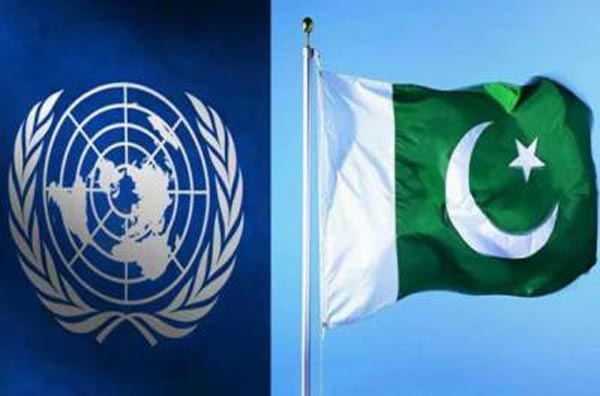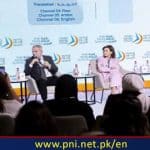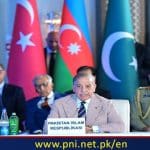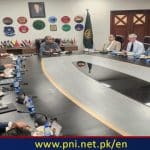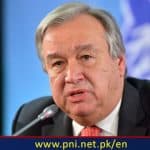UNITED NATIONS, Pakistan on Friday told the UN General Assembly that India’s grave human rights violations in the occupied Kashmir and the accompanying Pakistan-India tensions continued to pose an ever present threat to international peace and security, and urged the Security Council to implement its own resolutions to resolve the decades-old dispute.
“The Kashmir dispute can be durably resolved through implementation of these Security Council resolutions,” Ambassador Munir Akram said during a debate on the annual report of the 15-member Council to the General Assembly.
“Unfortunately,” the Pakistani envoy said, “India persists in its policy of repression in occupied Jammu and Kashmir and in attempts to change its demography as the means to foreclose the exercise of the Kashmiris’ right to self-determination – a fundamental right promised to them by the resolutions of the Security Council.”
Noting that the February 2021 India-Pakistan understanding to fully observe the 2003 Ceasefire along the Line of Control (LoC) in the disputed Kashmir region was welcomed by UN Secretary-General Antonio Guterres as a ‘positive step’, with the hope that it would ‘provide an opportunity for further dialogue’.
“A constructive dialogue,” Ambassador Akram said, “is possible if India takes steps to create the necessary ‘enabling environment’, including the reversal of its unilateral actions of 5 August 2019 in violation of Security Council resolutions, including resolution 91 and 122,” which prohibited any steps to alter the status of the disputed territory of Kashmir.
In his remarks, the Pakistani envoy pointed out that the Council had become more ‘cloistered’ than ever before, with the absence of discussion, debate and interaction in open meetings on important issues of peace and security.
“The closed nature of the Security Council’s proceedings and the lack of transparency as illustrated in its Annual Report to the General Assembly, contributes to disguising the reality that global tensions have grown, conflicts proliferated and little progress made in addressing existing disputes, including the Jammu and Kashmir dispute,” Ambassador Akram added.
Pointing out that the Security Council considered the situation in Jammu and Kashmir twice in 2020, he said it was one of its oldest agenda items. “Pakistan seeks a just settlement of the Jammu and Kashmir dispute in accordance with relevant UN Security Council resolutions”.
“The continuing oppression of the people of Kashmir and Palestine and countless other conflicts afflicting the Muslim world cannot be divorced from the rising phenomena of Islamophobia and the apparent impunity with which Muslim peoples and nations have been subjected to foreign intervention, aggression and occupation,” he said.
“For the past 20 years, hate and discrimination against Muslims has proliferated, even within some advanced and democratic countries.”
“The recent terrorist attack (in Canada) on a Muslim family of Pakistani-origin is yet another tragic reminder of the pernicious threat posed by violent ideologies of hate against Muslims,” the Pakistani envoy added.
On Afghanistan, the Pakistani envoy hoped that the international community, including the UNSC, will support efforts for a negotiated settlement and restrain the role of “spoilers”, some of whom are engaged in sponsoring terrorism from Afghanistan to advance their strategic objectives against Pakistan.
For its part, he added, Pakistan will continue to make all possible efforts to keep the Afghan-led and Afghan-owned peace process on track, promote mutual accommodation, help to end violence and realize a durable political settlement in Afghanistan.
“We must act against all fascist and totalitarian ideologies and groups who have weaponized hate as a political and ideological tool,” Ambassador Akram said.
As a first step, he said, they must be ‘called out’ and ‘designated’ for what they are: terrorist organizations and groups.
“We reiterate our call for the UN and the Security Council to broaden the scope of the current UN Security Council sanctions regime to include not only Muslim groups but also terrorists inspired by these new ideologies of anti-Muslim hate and terror.”
Follow the PNI Facebook page for the latest news and updates.


